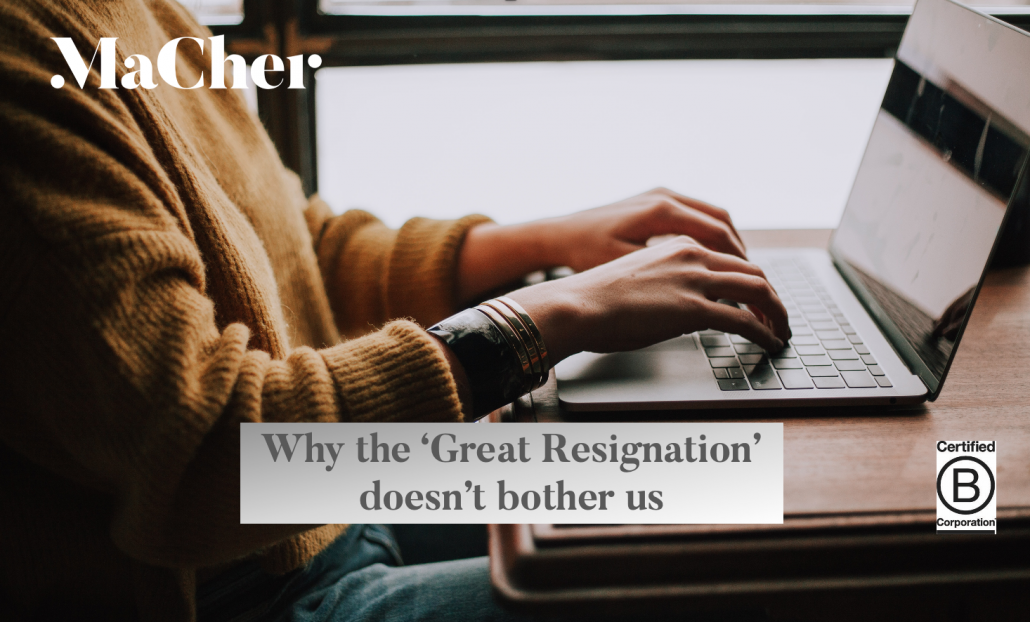It is extraordinarily rare for one person to be with a company forever. But rather than stressing about the Great Resignation, we spend our time empowering staff and developing strong workplace culture. Our focus is on being strong enough to deal with the future challenges of change.
In 2021, over 20 million Americans quit their jobs. This ‘Great Resignation’ has disrupted businesses across the country and even further afield. Our colleagues have despaired as their sent emails get only bounce backs instead of replies and the client relationships they have built over time just disappear.
Worker-employer relationship under pressure
The worker-employer relationship is under immense pressure because of the pandemic.
Some of this pressure brought great benefit. Many workers were resilient and well-supported. Companies transformed and new products and services went to market at rates many times faster than would have been the case pre-pandemic. For others – minority groups, women and the young in particular, some employers did not handle employees’ stress caused by work and life upheaval well.
Workplaces need to change
Facing increased recruitment costs and staffing shortages, workplaces are starting to recognise a need to change. Increased hourly wages and more flexible working conditions are being agreed almost daily. Companies are also being encouraged by governments to provide more good jobs with better pay and conditions. Ultimately, as ESG reporting rules become stricter, companies unable to offer meaningful jobs are likely to be penalised by the markets. And if further proof is needed, earlier this week in his annual letter to shareholders, BlackRock CEO Larry Fink said their research has found “companies who forged strong bonds with their employees have seen lower levels of turnover and higher returns through the pandemic”.
Improved pay and conditions are certainly necessary for many millions of people. However, without also focusing on purpose and embedding a human, rather than a transitional relationship with work in the business, companies may still find that they will struggle with recruiting and retaining quality staff.
Staff empowerment starts with security
At MaCher, we are a little company but like to push and challenge what is seen as ‘normal’ in what we do and how we work.
We start with security. We guarantee honest minimum liveable wages, health care plans and revenue sharing to all. By covering basic needs well and fairly, everyone has a reason to fully support our shared identity.
A few years ago, we took the decision to empower our staff and get rid of hierarchy and bosses. We became a self-organized or ‘teal’ organization. We bake financial goals into everyone’s roles, but how we get there is up to us. Each of us is completely responsible for our actions and, in good times and bad, fully accountable to one another.
This kind of collaboration requires a lot of trust, openness and meaningful individual interactions. It also takes an investment of time and a willingness for everyone to lead with empathy, compassion and determination. The results of significantly low staff turnover, high productivity and staff engagement are worth it. Our team feels valued for their thoughts and supported for new ideas.
It is essential to honor the challenge of this time by embedding a more equitable, transparent and accountable approach in all we do. Over the months ahead, we hope many companies will take the same steps we have.
We are happy to help.


